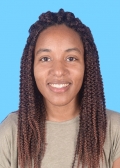
Maxi-Ann Campbell
Duke Kunshan University
Kunshan, China
|
|
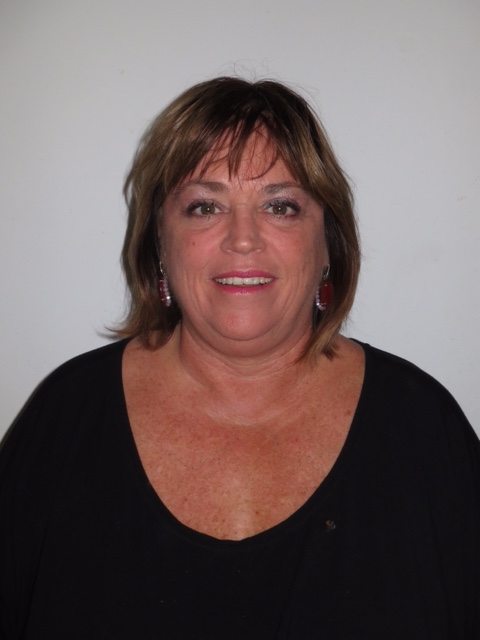
Barbara Lapornik
F.Preseren High School
Trieste, Italy
|
|

Amy Alice Chastain
Emirates College for Advanced Education, UAE
|
In supporting the 2015–2016 ICIS goals of interacting with
other associations outside TESOL, Amy Chastain, Maxi-Ann Campbell, and
Barbara Lapornik presented a panel entitled “Incorporating Qualitative
Research and the Arts in the Language Classroom: Case Studies From
Around the World” at the 2015 International Association of Language and
Intercultural Communication (IALIC) Conference. As the theme for the
IALIC 2015 conference affirmed, it is vital to “[move] away from an
essentialist view of culture [and explore and promote] alternative
perspectives to study language and intercultural communication in this
increasingly hybrid, mobile and interrelated world (IALIC,
2015)."
Amy, immediate past chair of ICIS, introduced the panel and
began the colloquium with a brief overview of the benefits and uses of
qualitative research design and methods, as well as creative expression
and participation through the arts, as the basis for ESL/EFL classroom
projects in high school and university settings. In completing these
projects, students link critical thinking, intercultural communication,
and language to investigate aspects of their local communities and
multicultural representation and gain insight into cultures, heritages,
and language use that, in turn, initiate dialogue and, in some cases,
ultimately inspire social change.
Based on her work in the United Arab Emirates, Amy presented on
the outcomes and effects of drama and ethno-drama on language
use/features, communication strategies, identity construction, and
beliefs about language policy and practice and related themes that
emerged based on student experience and reflection after such practices.
The lessons and activities were inspired by and incorporated Tara
Goldstein's (2003) work and the original short plays written and
performed by Amy's students, which enabled them to explore and discuss
issues such as those surrounding language choice, access to education,
identity, and advocacy for the first time in this context.
Maxi, the current ICIS chair-elect, focused on activities she
has done with university students in her class as they relate to music
and intercultural communication simulations. While music and simulations
are certainly not new to the field of intercultural communication or
language teaching, it was her hope that she would provide the audience
with focused, practical suggestions for using these resources
effectively in the classroom. She offered, for example, tips on how to
find meaningful music that can stimulate discussion on topics as varied
as the recent economic crisis and differences in job application culture
(e.g., discussion of equal opportunity laws). She then provided
suggestions for using simulations in the classroom on a regular basis to
make it more effective, no matter the class size. The first time one
does an IC simulation, it may not be effective, so multiple simulations
should be planned throughout a semester to achieve maximum impact. She
then ended her discussion with reflections on student response to these
activities.
Barbara presented her own, by now 15-year long experience with
international projects, which included student exchanges. Starting with
the opportunities offered by the new EU
Erasmus+ programme, she showed how she had included the IC
skills within the projects themselves to foster students’ intercultural
competence. The activities selected centered on culturally effective
behaviour, on ways of dealing with prejudices, and on the analysis of
critical incidents and their emotive reaction. She also considered a few
communication tools aimed at preventing misunderstanding and different
strategies for conflict resolution techniques, which are dealt with in
class. She concluded by presenting two longer projects focusing on
student-led interviews with migrant people .
Conference Highlights
There were several splendid plenaries given at the IALIC
conference, but the highlight for Maxi and Amy was certainly Joseph Lo
Bianco’s plenary, entitled “Facilitating Dialogue: Peace Building and
Language Policy in Conflict Zones in SE Asia.” Lo Bianco’s talk focused
on the work he has done using UNICEF grants to mediate conflicts through
research, language policy, and language education. He began his talk by
noting that his is the only UNICEF grant that focuses on language
education, even though the root of many conflicts begin with linguistic
misunderstanding. His research has found that the conflict often stems
from miscommunication between groups who have different linguistic and
cultural backgrounds as well as language policies that put particular
groups of people at a disadvantage. One of the things that made the
deepest impression on Amy was his meticulous care for allowing every
single voice in every single language represented to share equal
recognition and input through his team's careful construction of unified
documents detailing the needs and desires—declarations of peace—that
each individual and group brings to the table at these transformational
forums led by Bianco's efforts. Each day, every contribution is
carefully transcribed and translated and integrated, in order to be
presented together in concert the next day to continue to build toward a
unified voice for peaceful resolution for all involved. This practice
exemplifies what many of us, as language teachers, believe and strive
for in teaching language: to empower students without detracting from
the power they already have to express themselves in their own
tongue.
Maxi took particular notice of Lo Bianco’s statement that
providing a child an education in a language that is not their mother
tongue is one of the cruelest things that anyone can do to a child. It
leads to an ineffective education system that proliferates a cycle of
poverty and violence. Therefore, Lo Bianco and his team have begun to
mediate this problem through their research and language policy
advising. This plenary particularly stood out to Maxi as it further
reinforced to her that language teaching was not simply about grammar or
pronunciation, but it can be a powerful tool for effective
communication, prosperity, and peace building if wielded effectively;
the reverse is also true if language policies are made without careful
research. Maxi plans to continue exploring the relationships among
language teaching, intercultural communication, research, and conflict
resolution.
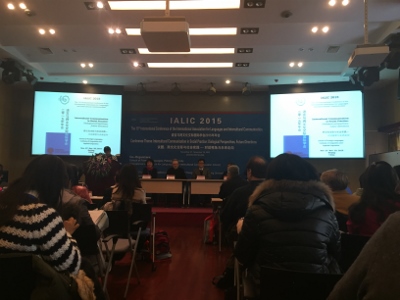
IALIC
leadership and conference attendants gather to begin the 15th annual IALIC
Conference in Beijing, China.
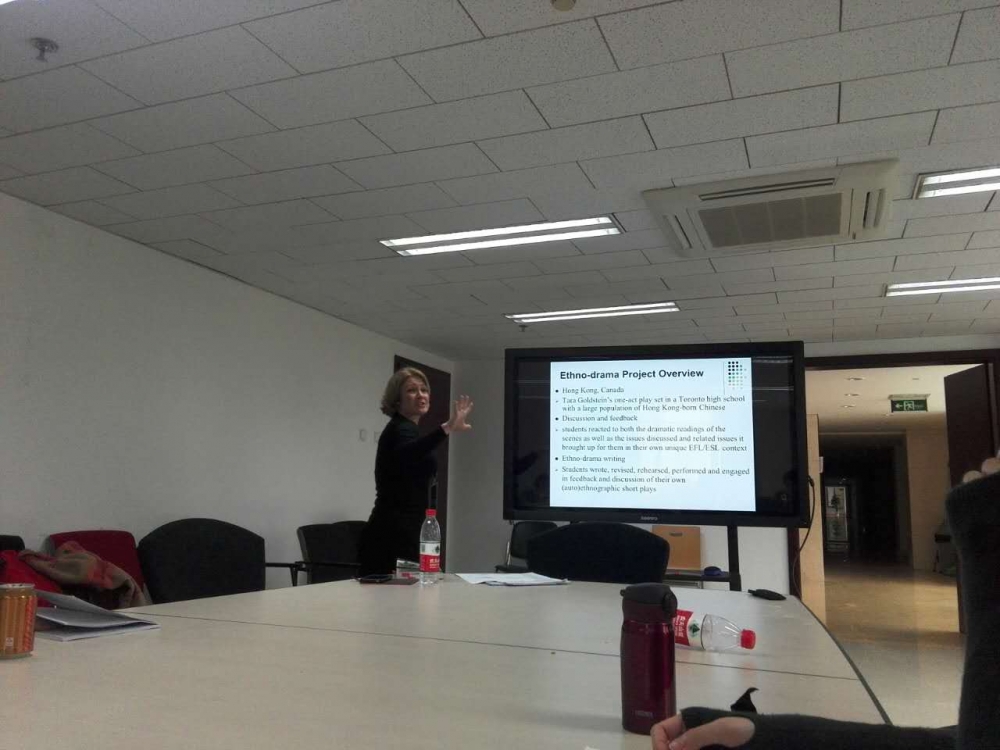
Amy
Alice Chastain describes the background of ethno-drama projects to audience
members.
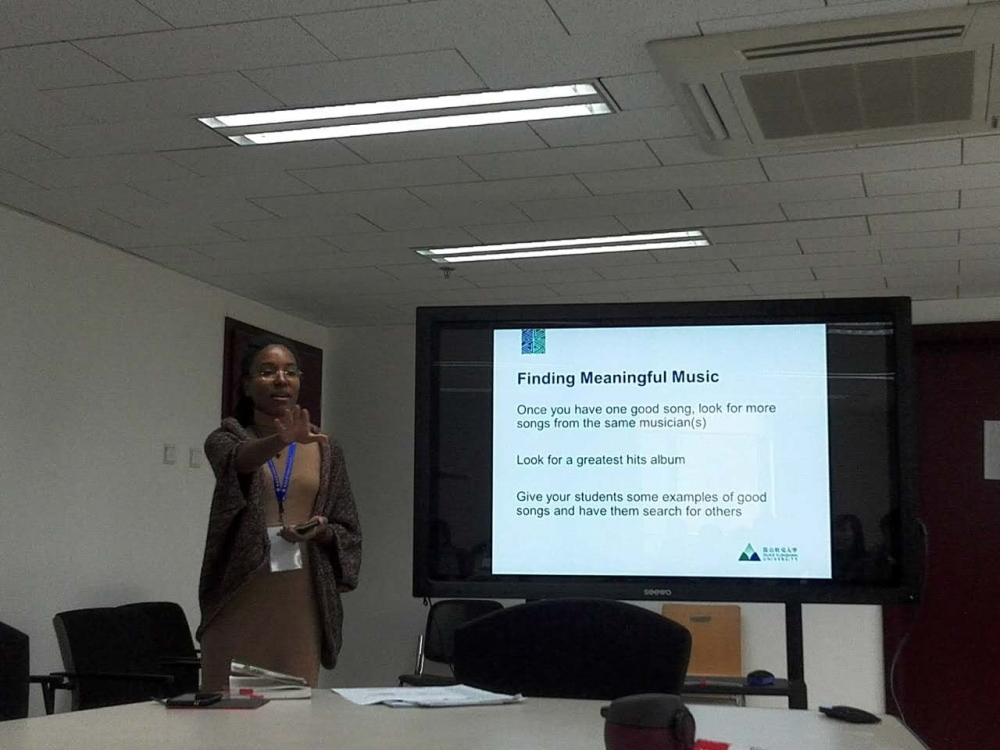
Maxi-Ann
Campbell offers tips for finding meaningful music that can generate discussion
about intercultural differences and similarities.
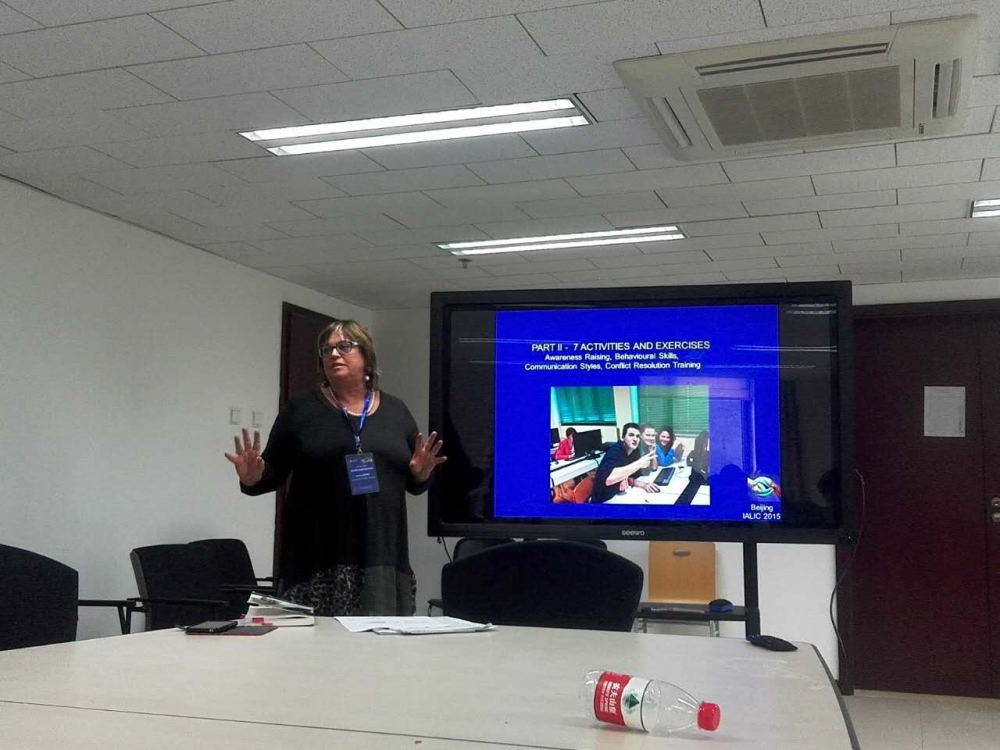
Barbara
Lapornik looks at definitions of intercultural competence before describing the
activities she does in her classroom to develop her students' intercultural
skills.
References
International Association for Languages and Intercultural Communication. (2015).
Maxi-Ann Campbell is currently an EFL/writing
instructor at Duke Kunshan Univeristy, and ICIS's chair-elect. She has
taught English at Tsinghua University and Shantou University, and has
served as a Global Academic Fellow at NYU Shanghai. Her research focuses
on native-nonnative speaker interaction in university settings and the
interplay of culture and language in Chinese English-medium universities
on students’ development of linguistic and cultural
competence.
Barbara Lapornik, MA, lives and works in the town of
Trieste, Italy. She is currently a teacher of English at F.Preseren high
school, its vice-principal and European project manager. Since 1999,
she has coordinated three EU Comenius and Erasmus projects and more
than10 student exchange projects with EU countries. She has been
presenting her experience in international conferences.
Amy Alice Chastain has been active in TESOL and serves
as immediate past chair of ICIS. She has taught and lived in both China
and the United Arab Emirates and studied in France in vastly different
cultures and learning environments, each with its own challenges and
rewards, and she looks forward to where her journey might take her next.
Amy’s research interests include exploring ways to encourage and build
intercultural understanding and communicative competence, the use of
ethnography and narrative, language choice, and
identity. |

